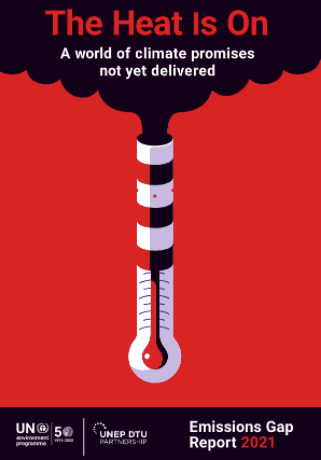
The United Nations Environment Programme’s 2021 annual Emissions Gap Report says, “Neither current policies nor the latest NDCs (Nationally Determined Contributions) and announced pledges are consistent with limiting warming to 1.5°C – the goal of the Paris Agreement.” It indicates that – even if we keep all announced pledges – we have only a 50% chance of limiting temperature rises to 2.5°C, a 66% chance of limiting temperature rise to 2.7°C, and a 90% chance of keeping to a 3.3°C rise.
https://www.unep.org/resources/emissions-gap-report-2021
Most climate change experts agree that action taken this decade is the most crucial, and yet the UK continues to fall behind in its progress to tackle and prepare for the existing – let alone anticipated – effects of climate change.
We should be under no illusion: each of the predictions will bring about wide-ranging and catastrophic ecological and sociological impacts.
The UK is one of the wealthiest countries in the world, and Hampshire has the second greatest concentration of wealth in the UK (behind London). ACAN therefore expects all levels of government to be leading the way and ensuring that local councils, businesses and citizens can and do take every opportunity to help prevent warming beyond 1.5°C.
The findings and recommendations for East Hampshire from the Tyndall Centre for Climate Change Research (https://carbonbudget.manchester.ac.uk/reports/E07000085)* are clear, reasonable and very helpful, and highlight the fact that East Hampshire – in particular – is not currently making its ’fair’ contribution towards the Paris Climate Change Agreement and needs to undertake “an immediate and rapid programme of decarbonisation.
Tough targets and immediate action are required.
ACAN propose that government and local authorities commit to the following:
- Each MP to publish annual emissions figures with summary of results
- Government to ensure public money and local government pension schemes are no longer used to subsidise fossil fuel companies, and instead are invested in renewable energy, thereby promoting more ‘green jobs’.
- Government to decarbonise aviation and shipping. Initially, this will mean seriously considering strategies for significantly limiting emissions growth from aviation and shipping(*) (See the link below this list for details of our concerns regarding aviation.)
- Government and councils to reform planning advice so that authorities can and do demand zero carbon developments, transport, energy and waste systems
- Government and councils to ensure children receive ‘climate smart nutrition’ which encourages ‘grow your own’ and the purchasing of more seasonal, local products
- Government and councils to campaign for and support behaviour change – eg consider origin of products, reduce energy and food waste, and increase active travel and recycling
- Councils to promote and invest in low carbon energy generation within the region(*) & energy efficiency with a programme to retrofit all buildings, starting with public and rental sectors
- Councils to halt deforestation & restore degraded lands to ensure CO2 sequestration where possible and increase wider social and environmental benefits
- Councils to decarbonise public transport, and support shift to walking and cycling – eg by reallocating highway space to walking and cycling
- Councils to create more Clean Air Zones and Green Transport Corridors, and support switch to electric vehicles – eg with network of EV charging points and eScooter parking
 Alton Climate Action Network
Alton Climate Action Network